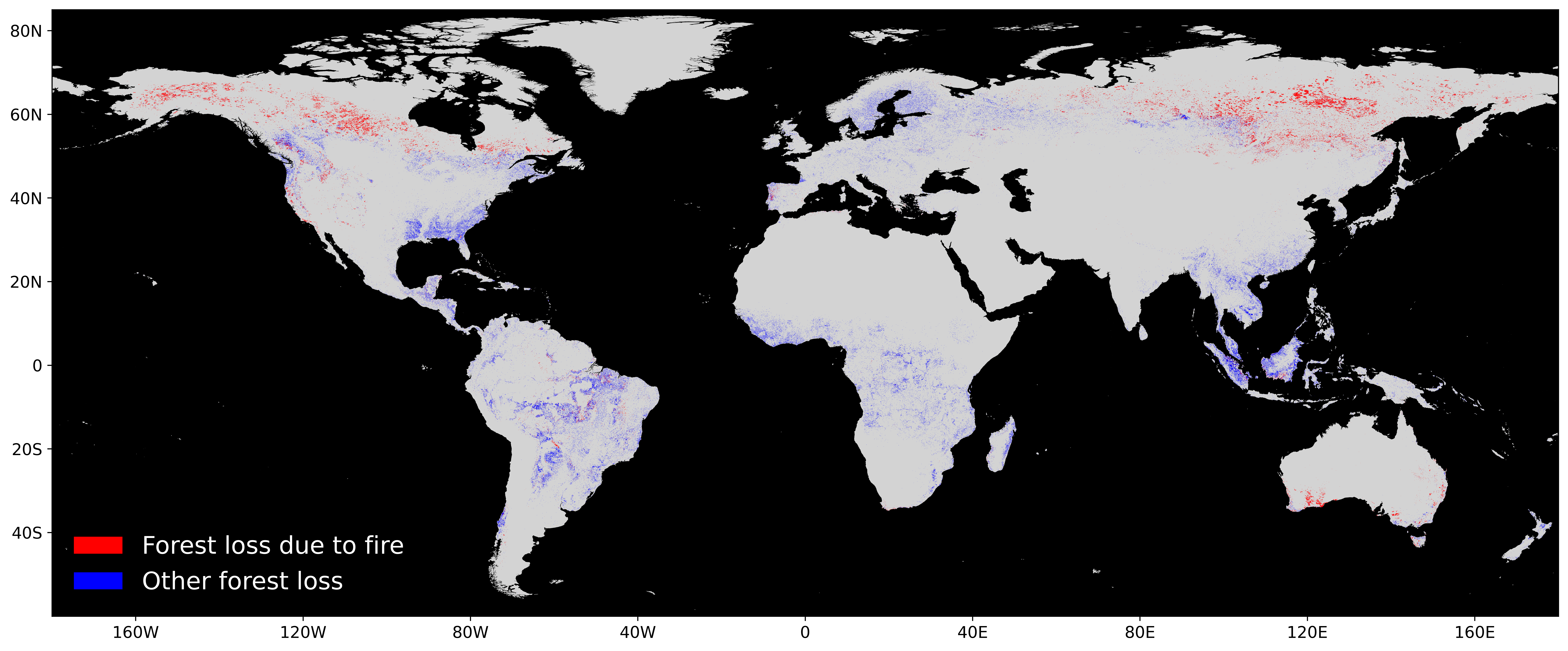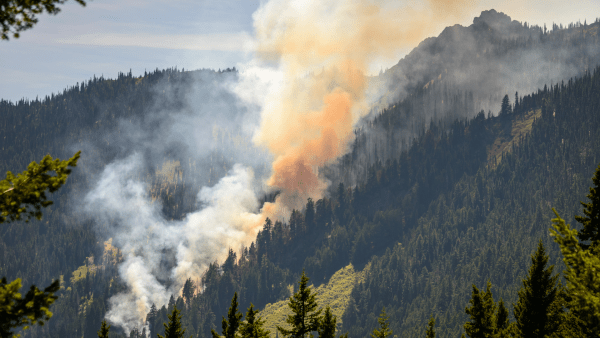New GLAD Study Shows Fires Caused One Third of Global Forest Loss Between 2001 and 2019
Researchers from the Global Analysis and Discovery (GLAD) Lab have produced the first ever 30m resolution global map of fire-induced forest loss. The study, published in Frontiers in Remote Sensing, shows that one third of global forest loss between 2001 and 2019 was due to fires, which is higher than previous estimates. The researchers hope that their map helps improve modeling of future forest fire loss rates under various climate crisis scenarios.
The severe wildfires in Australia, California, and Brazil in recent years have attracted the world’s attention to the threat of forest fires. However, there is a lack of clear and consistent global data on the types and drivers of forest fires.
“In the case of the Amazonian fires of 2019, there was no clear information on what exactly was burning: forests or previously deforested areas that had been converted to pasture and cropland,” explained Dr. Sasha Tyukavina, an assistant research professor in the Department of Geographical Sciences.
Tyukavina and her colleagues attempted to close the information gap surrounding forest fires by producing the first ever 30m resolution global map of forest loss due to wildfires between 2001 and 2019.

Forest loss was defined as the removal of woody vegetation over 5 meters in height. To accurately map forest loss types and drivers, the researchers distinguished between forest loss due to fires and forest loss due to other factors such as agriculture, floods, and hurricanes.
“We have been producing the global forest loss map and updating it annually since 2013, but we did not attribute drivers of forest loss. This means that we did not know what exactly happened to forests (fire or mechanical removal) and we didn’t know whether this forest loss was temporary (for example, due to slash-and-burn farming) or long-term (deforestation),” said Tyukavina.
“These distinctions of different kinds of forest loss are important from standpoints of carbon accounting and land management.”
The new map showed that the proportion of global forest loss due to fires between 2001 and 2019 is 26% to 29%, higher than previously estimated. It also showed a worrying increase in fires in primary tropical forests of Latin America and Africa. Primary forests are forests in their ‘final form’; fully grown, dense, and bursting with biodiversity. They are extremely important for the environment. Typically, fires in primary tropical forests are very rare.
The researchers propose to use the map as a tool for forest management, policy and conservation program development, and climate modeling.
“Our new map is a good indicator of where the fires resulting in the loss of forest canopy have happened in the last two decades, and could help guide future finer-detail national, regional and local-scale studies, or tune coarser-scale global models,” concluded Tyukavina.
View the interactive map.
Article originally posted by Frontiers. Image from Zack Frank/Shutterstock.com
Published on Thu, 03/17/2022 - 16:53


